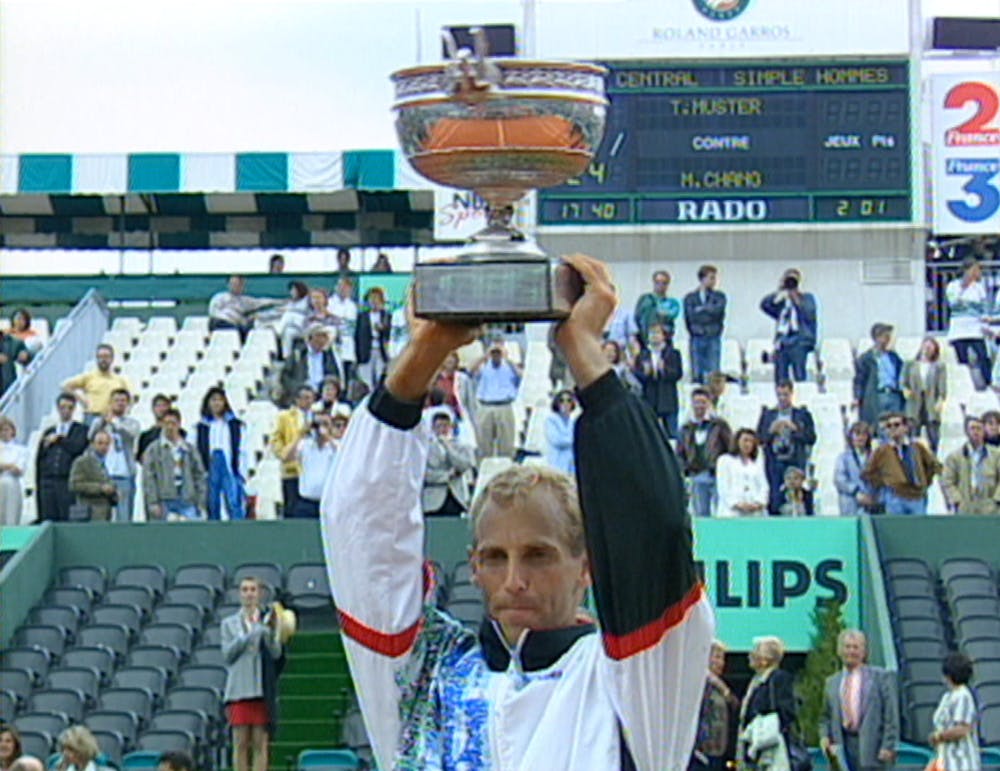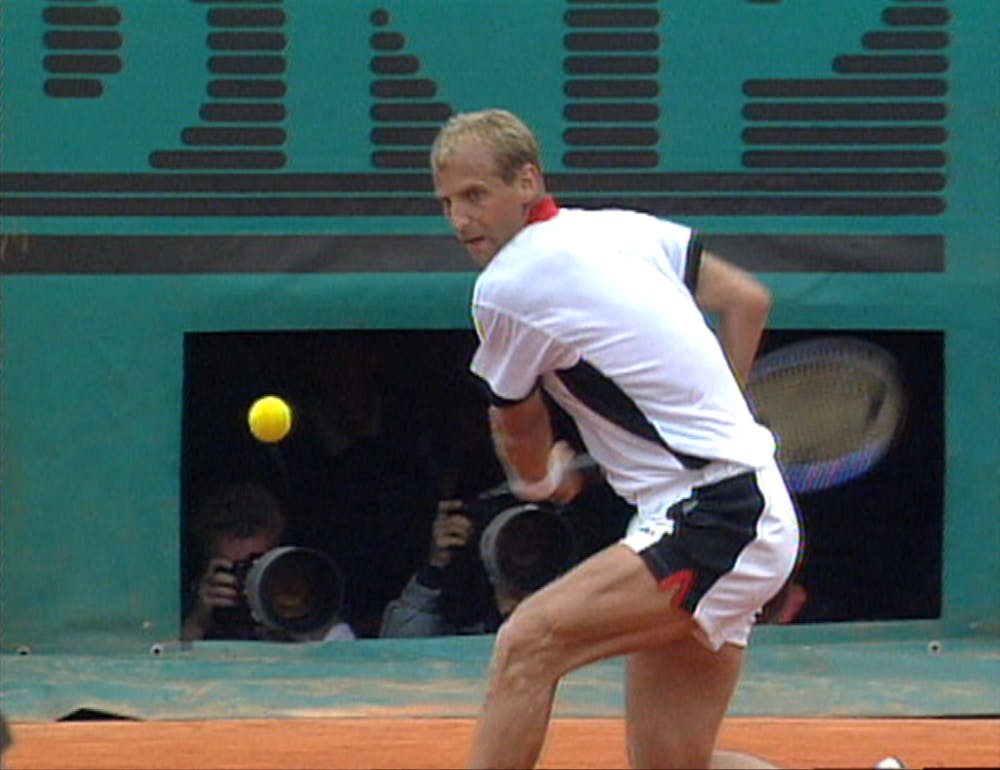Round 3: d. Carlos Costa (ESP) 6-3, 7-5, 6-2
Carlos Costa may be better known these days as Rafael Nadal’s agent but in 1995, he was a fine clay-court player, a man good enough to have reached the final of the Italian Open three years before. He had also taken Muster to a deciding set in their most recent clay-court meeting, in Barcelona the previous month, but on this day in Paris, he was no match for the Austrian, who romped to one of his most convincing victories in their eight career meetings.
Round 4: d. Andrei Medvedev (UKR) 6-3, 6-3, 6-0
Four years later, Medvedev would go all the way to the Roland-Garros final and lead Andre Agassi two sets to love before going down in five sets. As he prepared to face Muster, the Ukrainian was ranked No.18 and at home on clay, but Muster, crunching that famous forehand with characteristic venom, pummelled him into the ground, wasting no energy as he cruised into the second week.
Quarter-finals: d. Albert Costa (ESP) 6-2, 3-6, 6-7, 7-5, 6-2
Muster had beaten the 19-year-old Costa easily to win the Estoril title at the start of his stunning 1995 clay-court run and most people expected this to be straightforward too. But Costa, who was already being tipped for big things in Spain, had other ideas, lavishing his one-handed backhand to great effect and getting himself to within two games of victory in the fourth set. But once Muster had snatched the fourth, he rode his momentum. “I think that was the key, that was the key match to succeed (at Roland-Garros), he said. “I was two sets to one down, it was pretty tough one, remembering it now. Albert was rough.”
 ROLAND-GARROS
18 May - 7 June 2026
ROLAND-GARROS
18 May - 7 June 2026




